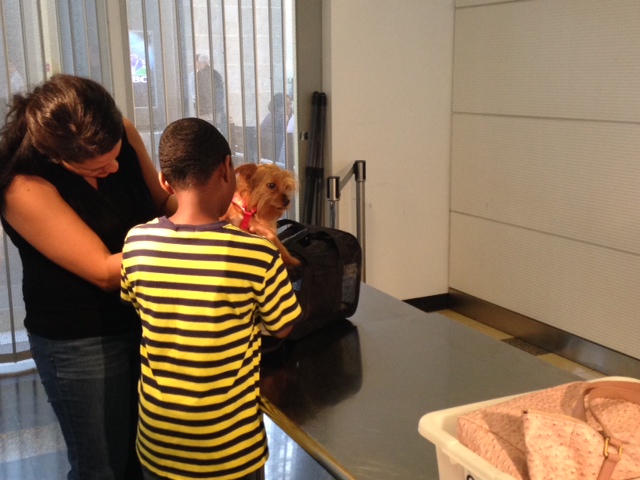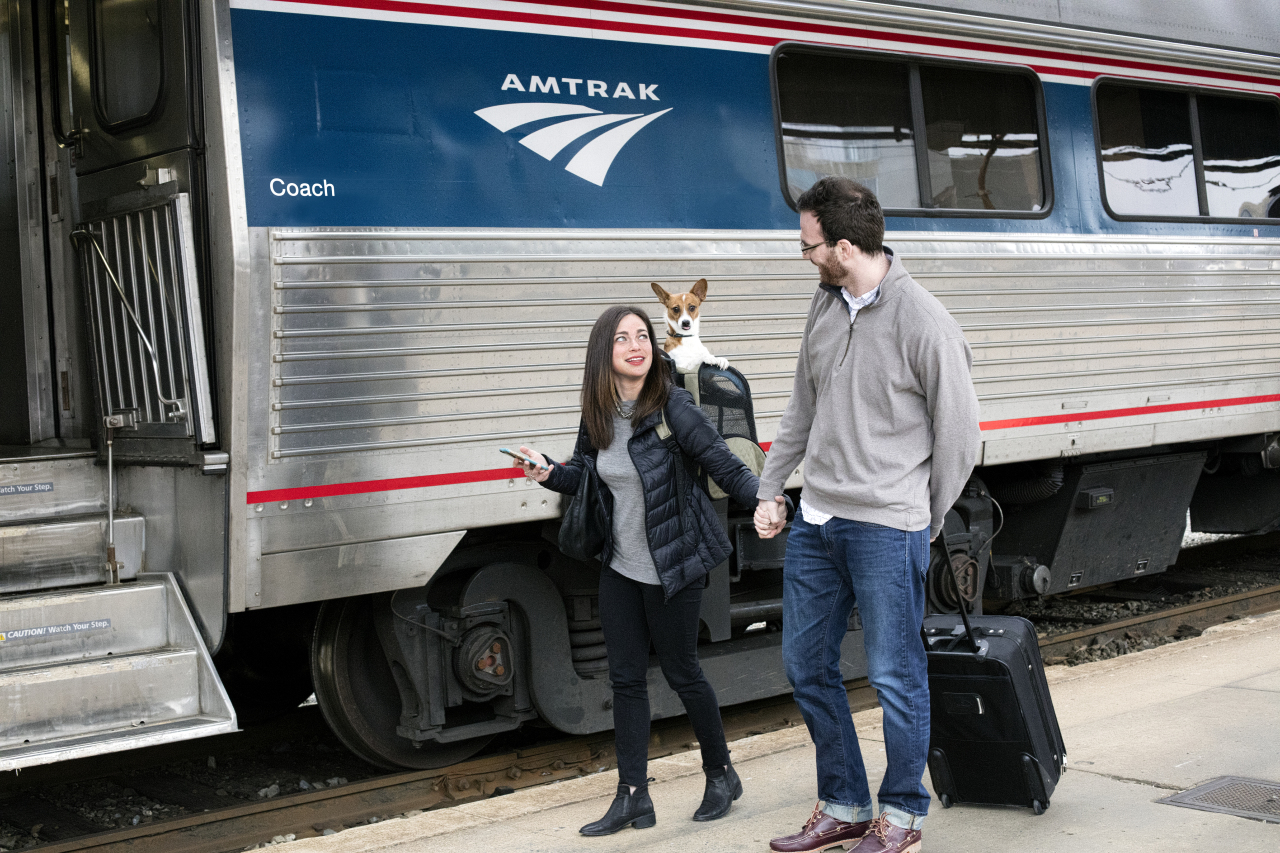
WASHINGTON — With the holidays just around the corner, it’s now the season for finalizing travel plans for you and your family. And for some, that includes planning for even their furriest family members.
If you’re traveling with your pet by plane or car — or even leaving them at home — for the holidays, veterinarian Dr. Katy Nelson has some tips for keeping your pet safe.
For those with older or more anxious pets, Nelson says it’s important to steer clear of sedatives whether you leave them at home, in a kennel or bring them along.
“I do not ever recommend sedating your pets for travel or giving them a sedative at any point during boarding,” Nelson said. “It decreases their ability to thermo-regulate and it does nothing for their anxiety, so they can be anxious and just feel like they can’t move. Get them something for anxiety versus sedation.”
Nelson recommends talking to your veterinarian about your pet’s pain and anxiety control, as well as making sure you refill all of your pet’s medications and bring their own food with them.
From making sure your pet’s vaccines are up-to-date to getting a pet health certificate, taking your pet on a plane requires more advance planning, Nelson said.
“If you are going to travel with your pets, [the] No. 1 thing is you do need to have an airline-approved carrier,” Nelson said. “So that is a huge part of this: making sure that they’ve got room to stand up, turn around, move around a touch. But they do not need to be able to fly back and forth in this thing. And airline approved is the big word there.”
After you’ve got an airline-approved carrier, Nelson says the second most important step is getting your pet a health certificate so they can actually get on the plane. The U.S. Department of Agriculture requires all pets, with the exception of guide dogs, to have a rabies immunization and health certificate issued by a veterinarian within 30 days of your travel.
If your pet is traveling through cargo, you need to get a health certificate issued 10 days before you leave.
Nelson recommends having appointments booked ahead of time and updating your pet’s vaccines at least two weeks before traveling or boarding “so that their body has enough time to build up that immunity against these issues,” Nelson said.
Individual airlines may also have their own restrictions or fees, and there may be additional health requirements specifically for traveling to different states. If you plan on flying internationally, you’ll also need to take further steps to get your pet there.
While driving with your pet may not require as much advanced-planning as flying with them entails, there are still steps to keep you and your pet safe and comfortable.
Nelson said that just like people, pets need to be properly restrained with a seat belt for their own safety and so they don’t cause major distractions while you’re driving.
Nelson recommends visiting the Center for Pet Safety’s website, which reviews and gives stamps-of-approval for products that are safe for restraint in the car.
Beyond safety, it’s also important to make sure your pet is comfortable throughout the ride, especially for older pets, Nelson said.
“So making sure that you stop frequently; you find a way to keep them hydrated; these little collapsible bowls are awesome to have those on board,” Nelson said. “And having some of their own bedding and things like that can help to cushion them, especially if you have an older dog like I do whose joints can get pretty sore on these car rides.”
If you plan on staying in a pet-friendly hotel, Nelson said bringing your pet’s own bowls and bedding can make them feel more comfortable in an unfamiliar space.
“They’re already going to be out of their routine. They’re going to be a little nervous and a little anxious about this. But having their own things there that smell like home can help them to feel a little bit better,” Nelson said.
And if you’re planning on skipping the pet travel this holiday season and decide on boarding your pets instead, Nelson said to make those reservations as soon as possible, as many places become booked fast.
For your older and more anxious pets, Nelson suggests considering getting a pet sitter instead of boarding them.
“If you do have an elderly pet or you have a pet that has high anxiety or a disease like diabetes where anxiety and stress can actually affect how they metabolize their insulin, I recommend pet sitters,” Nelson said. “It really is a lot easier on them for them to stay at home, for these elderly or ill pets.”







